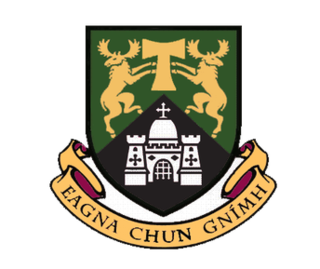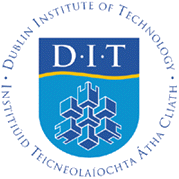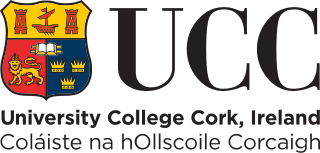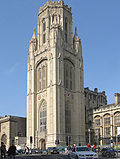Linköping University is a state university in Linköping, Sweden. Linköping University was granted full university status in 1975 and is now one of Sweden's larger academic institutions. Education, research and PhD training are the mission of four faculties: Arts and Sciences, Educational Sciences, Medicine and Health Sciences, and the Institute of Technology. In order to facilitate interdisciplinary work, there are 14 large departments combining knowledge from several disciplines and often belonging under more than one faculty. Linköping University emphasises dialogue with the surrounding business sphere and the community at large, both in terms of research and education. In 2018, Linköping University was home to 32,000 students and 4,000 employees.

The University of Limerick (UL) is a higher education institution in Limerick, Ireland. Founded in 1972 as the National Institute for Higher Education, Limerick, it became a university in 1989 in accordance with the University of Limerick Act 1989. It was the first university established since Irish independence in 1922, followed by the establishment of Dublin City University later the same day.

Dublin City University is a university based on the Northside of Dublin, Ireland. Created as the National Institute for Higher Education, Dublin in 1975, it enrolled its first students in 1980, and was elevated to university status in September 1989 by statute.

Queen Mary University of London is a public research university in London, England, and a constituent college of the federal University of London. It dates back to the foundation of London Hospital Medical College in 1785. Queen Mary College, named after Mary of Teck, was admitted to the University of London in 1915 and in 1989 merged with Westfield College to form Queen Mary and Westfield College. In 1995 Queen Mary and Westfield College merged with St Bartholomew's Hospital Medical College and the London Hospital Medical College to form the School of Medicine and Dentistry.

The National University of Ireland, Maynooth, commonly known as Maynooth University (MU), is a constituent university of the National University of Ireland in Maynooth, County Kildare, Ireland. It was Ireland's youngest university until Technological University Dublin was established in 2019, as it was founded by the Universities Act, 1997 from the secular faculties of the now separate St Patrick's College, Maynooth, which was founded in 1795. Maynooth is also the only university town in Ireland, all other universities being based within cities.

Dublin Institute of Technology was a major third-level institution in Dublin, Ireland. On 1 January 2019 DIT was dissolved and its functions were transferred to the Technological University Dublin. The institution began with the establishment of the first technical education institution in Ireland, in 1887, and progressed through various legal and governance models, culminating in autonomy under a statute of 1992.

All Hallows College was a college of higher education in Dublin. It was founded in 1842 and was run by the Vincentians from 1892 until 2016. On 23 May 2014, it was announced that it was closing down, due to decreasing student numbers. The sale of the campus in Drumcondra to Dublin City University was announced on 19 June 2015 and completed on 8 April 2016. The college closed on 30 November 2016, becoming the All Hallows Campus of Dublin City University.

University College Cork – National University of Ireland, Cork (UCC) is a constituent university of the National University of Ireland, and located in Cork.

The Royal College of Surgeons in Ireland is a professional association and educational institution that is responsible for the medical speciality of surgery throughout the island of Ireland. Uniquely among the four mutually recognised royal surgical colleges in the United Kingdom and Ireland, it also incorporates a medical school, which is now Ireland's largest with over 3,000 students from 60 countries. Since 2019 the body has had full university status, making it the first private university in Ireland.

Desmond Fitzgerald is an Irish medical doctor and academic leader. On 6 October 2016, Fitzgerald was announced as the President-elect of the University of Limerick. He took up this role in early 2017, becoming the fifth President. Prior to this, Desmond held the positions of Vice President for Health Affairs with University College Dublin and Chief Academic Officer at Ireland East Hospital Group from 2015 to 2016.

Anthony Ward Clare was an Irish psychiatrist well known in the UK and Ireland as a presenter of radio and TV programmes.
The UCD School of Medicine at University College Dublin, Ireland, was founded in 1855. Graduates include the current head of school, outgoing dean and the president of the University College Dublin.
Dublin Molecular Medicine Centre (DMMC) was a charity set up in 2002, to create critical mass in molecular medicine research in Dublin, Ireland. Funding was provided by the Higher Education Authority.

National College of Ireland (NCI) or Coláiste Náisiúnta na hÉireann (CNÉ) in Irish is a not-for-profit, state-aided third-level education institution in Dublin. Founded as a Jesuit venture in 1951, it is now an autonomous college, offering full and part-time courses from undergraduate to postgraduate level, in areas related to, among others, psychology, finance, business and computing. All courses are delivered from the IFSC campus in Dublin and across a network of regional centres.

The Royal College of Surgeons in Ireland and University College Dublin Malaysia Campus (RUMC), formerly known as the Penang Medical College, is a private medical university within George Town, the capital city of the Malaysian state of Penang. Established in 1996, it is wholly owned by the Royal College of Surgeons in Ireland (RCSI) and University College Dublin (UCD). The institution was granted university status in 2018 and to date, it is the only branch campus of an Irish tertiary institution within Malaysia.

Swansea University Medical School is a medical school on Swansea University's Singleton campus with additional teaching centres located throughout South and West Wales, including Cefn Coed Hospital, Singleton Hospital and Morriston Hospital in Swansea, Prince Philip Hospital in Llanelli, Withybush General Hospital in Haverfordwest and Bronglais Hospital in Aberystwyth. The Medical School also has an extensive network of primary care teaching centres.
The UCD library, composed of five separate bodies, has varied ranges of digital and printed books on a wide range of topics. Namely architecture, arts and humanities, business studies, engineering, law, medicine, science, social sciences and veterinary medicine. In 2015 UCD Archives and the National Folklore Collection UCD came under the administrative umbrella of UCD Library. University College Dublin (UCD) is the Republic of Ireland's largest university. It is located in Dublin, capital of Ireland.

University College Dublin is a research university in Dublin, Ireland, and a member institution of the National University of Ireland. It has over 1,482 academic staff and 32,000 students, and it is Ireland's largest university. UCD originates in a body founded in 1854, which opened as the Catholic University of Ireland on the Feast of Saint Malachy and with John Henry Newman as its first rector; it re-formed in 1880 and chartered in its own right in 1908. The Universities Act, 1997 renamed the constituent university as the "National University of Ireland, Dublin", and a ministerial order of 1998 renamed the institution as "University College Dublin – National University of Ireland, Dublin".
Patrick G. Johnston was a Northern Irish physician and a leading expert in cancer research. He was a professor of oncology at Queen's University Belfast, where he served as vice-chancellor and president from March 1, 2014, until his death.
Thomas Edwin Nevin was an Irish physicist and academic who had a distinguished career in the field of molecular spectroscopy. He was Professor of Experimental Physics and Dean of the Faculty of Science in University College Dublin (UCD) from 1963 to 1979.














